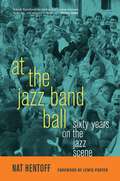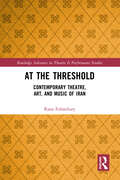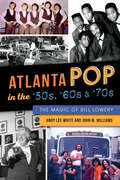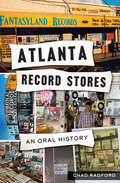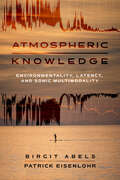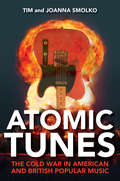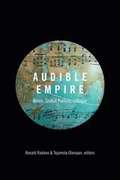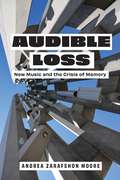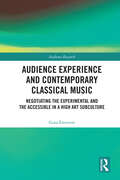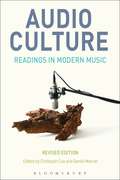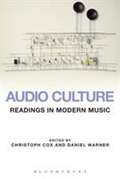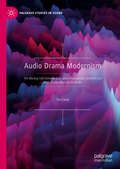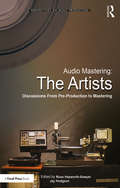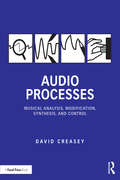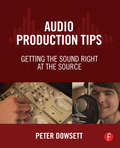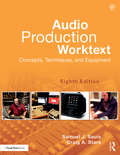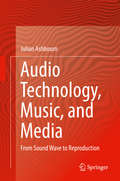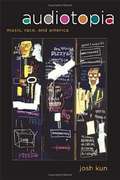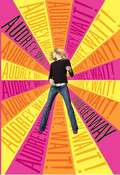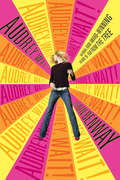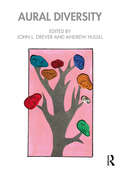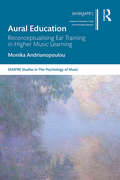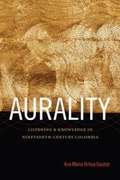- Table View
- List View
At the Jazz Band Ball: Sixty Years on the Jazz Scene
by Nat HentoffNat Hentoff, renowned jazz critic, civil liberties activist, and fearless contrarian—"I’m a Jewish atheist civil-libertarian pro-lifer"—has lived through much of jazz’s history and has known many of jazz’s most important figures, often as friend and confidant. Hentoff has been a tireless advocate for the neglected parts of jazz history, including forgotten sidemen and -women. This volume includes his best recent work—short essays, long interviews, and personal recollections. From Duke Ellington and Louis Armstrong to Ornette Coleman and Quincy Jones, Hentoff brings the jazz greats to life and traces their art to gospel, blues, and many other forms of American music. At the Jazz Band Ball also includes Hentoff’s keen, cosmopolitan observations on a wide range of issues. The book shows how jazz and education are a vital partnership, how free expression is the essence of liberty, and how social justice issues like health care and strong civil rights and liberties keep all the arts—and all members of society—strong.
At the Piano with Fauré
by Marguerite LongThe virtuoso pianist and teacher, Marguerite Long, was a great friend of Fauré and the foremost interpreter of his music.
At the Threshold: Contemporary Theatre, Art, and Music of Iran (Routledge Advances in Theatre & Performance Studies)
by Rana EsfandiaryThis book examines the performance strategies used by contemporary Iranian artists and activists to reimagine “Iranian-ness” in the context of Iran’s local, regional, and global position. This study identifies the important social and political interventions made by theatrical and performance pieces, visual art, and electronic music that articulate and reformulate Iranian-ness by breaking away from fixed and constructed stereotypes projected on them by both the Islamic regime and Western power. This book explores the reception and context within which artworks become meaningful performative acts. Looking closely at the works of a notable female Iranian photographer, Shadi Ghadirian, in conjunction with the new generation of Iranian nonconformist artists/activists such as Tahmineh Monzavi and Hedieh Ahmadi; the visionary theatre productions of Ali Akbar Alizad; and radically untraditional sound/noise of the electronic music movement in Tehran, this book calls attention to the Iran-based artists who are tirelessly trying to raise awareness regarding the political violence imposed on Iranian identity at the legal (top-down) and everyday (bottom-up) levels. This volume will be of great interest to student and scholars in theatre and performance, photography, art, music, sociology, and politics.
Atlanta Pop in the '50s, '60s & '70s: The Magic of Bill Lowery
by Andy Lee White Williams M JohnDiscover the people and places that made Atlanta the pop music capital of the United States in the second half of the twentieth century.Former DJ Bill Lowery attracted a galaxy of talent and created an empire of music publishing, production and promotion. In 1956, the Lowery Music Company had its first million copy-selling hit single with &“Be-Bop-a-Lula,&” by Gene Vincent. Under Lowery&’s direction, popular artists like Tommy Roe and Billy Joe Royal flourished. Audio engineer Rodney Mills teamed up with Lowery and future Atlanta Rhythm Section manager Buddy Buie to build Studio One, a recording studio that produced albums from legendary acts such as Joe South, Lynyrd Skynyrd, 38 Special and others. Andy Lee White and John M. Williams offer a comprehensive portrait of the vibrant postwar Atlanta music scene.&“Insight and memories from major behind the scenes figures like engineer, producer and Georgia Music Hall of Fame member, Rodney Mills (Lynyrd Skynyrd, Atlanta Rhythm Section, Gregg Almond, Joe South) along with Bob &“Tub&” Langford (engineer for Joe South&’s biggest hits and Lynyrd Skynyrd&’s &“Freebird&”) help tell previously untold memories from a special time for Atlanta music like none before or since.&” —East Cobber
Atlanta Record Stores: An Oral History
by Chad RadfordAtlanta Record Stores is an oral history of the city's rock music scene, as witnessed through the lens of Criminal Records, Fantasyland, Wax 'N' Facts, and many more. This is a rock-centric take on a town that's so often praised and admired around the world as a hip-hop mecca. Here, the secret history of the underdogs--outsiders living among outsiders--are told. From Jarboe of SWANS to William DuVall of Alice In Chains and Neon Christ, to Kelly Hogan, and those surly guys behind the counter at Wuxtry, all were drawn by the irresistible lure of vinyl records, all found their communities and their own identities, leaving an indelible mark on the culture of Atlanta. Now, in their own voices, their stories are told.
Atmospheric Knowledge: Environmentality, Latency, and Sonic Multimodality
by Patrick Eisenlohr Birgit AbelsA free ebook version of this title is available through Luminos, University of California Press's Open Access publishing program. Visit www.luminosoa.org to learn more. How do we know through atmospheres? How can being affected by an atmosphere give rise to knowledge? What role does somatic, nonverbal knowledge play in how we belong to places? Atmospheric Knowledge takes up these questions through detailed analyses of practices that generate atmospheres and in which knowledge emerges through visceral intermingling with atmospheres. From combined musicological and anthropological perspectives, Birgit Abels and Patrick Eisenlohr investigate atmospheres as a compelling alternative to better-known analytics of affect by way of performative and sonic practices across a range of ethnographic settings. With particular focus on oceanic relations and sonic affectedness, Atmospheric Knowledge centers the rich affordances of sonic connections for knowing our environments.
Atomic Tunes: The Cold War in American and British Popular Music
by Tim Smolko Joanna SmolkoWhat is the soundtrack for a nuclear war? During the Cold War, over 500 songs were written about nuclear weapons, fear of the Soviet Union, civil defense, bomb shelters, McCarthyism, uranium mining, the space race, espionage, the Berlin Wall, and glasnost. This music uncovers aspects of these world-changing events that documentaries and history books cannot. In Atomic Tunes, Tim and Joanna Smolko explore everything from the serious to the comical, the morbid to the crude, showing the widespread concern among musicians coping with the effect of communism on American society and the threat of a nuclear conflict of global proportions. Atomic Tunes presents a musical history of the Cold War, analyzing the songs that capture the fear of those who lived under the shadow of Stalin, Sputnik, mushroom clouds, and missiles.
Audible Empire: Music, Global Politics, Critique
by Ronald Radano Tejumola OlaniyanAudible Empire rethinks the processes and mechanisms of empire and shows how musical practice has been crucial to its spread around the globe. Music is a means of comprehending empire as an audible formation, and the contributors highlight how it has been circulated, consumed, and understood through imperial logics. These fifteen interdisciplinary essays cover large swaths of genre, time, politics, and geography, and include topics such as the affective relationship between jazz and cigarettes in interwar China; the sonic landscape of the U.S.- Mexico border; the critiques of post-9/11 U.S. empire by desi rappers; and the role of tonality in the colonization of Africa. Whether focusing on Argentine tango, theorizing anticolonialist sound, or examining the music industry of postapartheid South Africa, the contributors show how the audible has been a central component in the creation of imperialist notions of reason, modernity, and culture. In doing so, they allow us to hear how empire is both made and challenged. Contributors: Kofi Agawu, Philip V. Bohlman. Michael Denning, Brent Hayes Edwards, Nan Enstad, Andrew Jones, Josh Kun, Morgan Luker, Jairo Moreno, Tejumola Olaniyan, Marc Perry, Ronald Radano, Nitasha Sharma, Micol Siegel, Gavin Steingo, Penny Von Eschen, Amanda Weidman.
Audible Loss: New Music and the Crisis of Memory
by Andrea Zarafshon MooreAn innovative and much-needed critical work on music and memorialization in relation to AIDS, 9/11, and anti-Black violence in AmericaMusic has long served as a powerful medium for communal mourning and remembrance in times of crisis. Audible Loss examines musical responses to three major crises in US society at the turn of the twenty-first century: the AIDS epidemic, the terrorist attacks of September 11, 2001, and the ongoing conditions of anti-Black violence.Analyzing a range of works written to commemorate these losses, Andrea Zarafshon Moore explores how contemporary classical music (aka “new music”) frames and narrates these crises, gives voice to grief, imagines other possibilities, and makes loss audible. These crises are read alongside one another to reveal the ways they are mutually imbricated, while also recognizing the sheer commemorative dominance of 9/11 in this century. Attending to broader debates and discourses through which commemoration is always filtered and the ways interpretive consensus has been sought and articulated in both musical and other memorial forms, Moore probes the conventional claims of commemoration, particularly those for the necessity of remembrance to “healing” and the prevention of future crises.Audible Loss concludes by reflecting on the limits of existing commemorative forms and the possibility, even necessity, of new ones. Taking the COVID-19 pandemic as a case study, it proposes that while memorials of all kinds may provide outlets for collective remembrance and even mourning, their power to forge a sense of collectivity is diminished as public discourse grows more fragmented. Deeply informed yet highly approachable, Audible Loss is a major contribution to the fields of music and memory studies and essential reading for anyone interested in memory culture in the United States today.
Audience Experience and Contemporary Classical Music: Negotiating the Experimental and the Accessible in a High Art Subculture (Audience Research)
by Gina EmersonThis book responds to recent debates on cultural participation and the relevance of music composed today with the first large-scale audience experience study on contemporary classical music. Through analysing how existing audience members experience live contemporary classical music, this book seeks to make data-informed contributions to future discussions on audience diversity and accessibility. The author takes a multidimensional view of audience experience, looking at how sociodemographic factors and the frames of social context and concert format shape aesthetic responses and experiences in the concert hall. The book presents quantitative and qualitative audience data collected at twelve concerts in ten different European countries, analysing general trends alongside case studies. It also offers the first large-scale comparisons between the concert experiences and tastes of contemporary classical and classical music audiences. Contemporary classical music is critically discussed as a ‘high art subculture’ rife with contradictions and conflicts around its cultural value. This book sheds light on how audiences negotiate the tensions between experimentalism and accessibility that currently define this genre. It provides insights relevant to academics from audience research in the performing arts and from musicology, as well as to institutions, practitioners and artists.
Audio Culture, Revised Edition: Readings in Modern Music
by Christoph Cox Daniel WarnerThis new and expanded edition of the Audio Culture contains twenty-five additional essays, including four newly-commissioned pieces. Taken as a whole, the book explores the interconnections among such forms as minimalism, indeterminacy, musique concrète, free improvisation, experimental music, avant-rock, dub reggae, ambient music, hip hop, and techno via writings by philosophers, cultural theorists, and composers. Instead of focusing on some "crossover" between "high art" and "popular culture," Audio Culture takes all these musics as experimental practices on par with, and linked to, one another. Rather than offering a history of contemporary music, Audio Culture traces the genealogy of current musical practices and theoretical concerns, drawing lines of connection between recent musical production and earlier moments of sonic experimentation. The text includes writing by some of the most important musical thinkers of the past half-century, among them John Cage, Brian Eno, Ornette Coleman, Pauline Oliveros, Maryanne Amacher, Glenn Gould, Umberto Eco, Jacques Attali, Simon Reynolds, Eliane Radigue, David Toop, John Zorn, Karlheinz Stockhausen, and many others.
Audio Culture: Readings in Modern Music
by Christoph Cox Daniel WarnerThe groundbreaking Audio Culture: Readings in Modern Music maps the aural and discursive terrain of vanguard music today. Rather than offering a history of contemporary music, Audio Culture traces the genealogy of current musical practices and theoretical concerns, drawing lines of connection between recent musical production and earlier moments of sonic experimentation. It aims to foreground the various rewirings of musical composition and performance that have taken place in the past few decades and to provide a critical and theoretical language for this new audio culture. Via writings by philosophers, cultural theorists, and composers, Audio Culture explores the interconnections among such forms as minimalism, indeterminacy, musique concrète, free improvisation, experimental music, avant-rock, dub reggae, Ambient music, HipHop, and Techno. Instead of focusing on the putative "crossover" between "high art" and "popular culture," Audio Culture takes all of these musics as experimental practices on par with, and linked to, one another. While cultural studies has tended to look at music (primarily popular music) from a sociological perspective, the concern here is philosophical, musical, and historical. Audio Culture includes writing by some of the most important musical thinkers of the past half-century, among them John Cage, Brian Eno, Glenn Gould, Umberto Eco, Ornette Coleman, Jacques Attali, Simon Reynolds, Pauline Oliveros, Paul D. Miller, David Toop, John Zorn, Karlheinz Stockhausen, and many others. The book is divided into nine thematically-organized sections, each with its own introduction. Section headings include topics such as "Modes of Listening," "Minimalisms," and "DJ Culture. " In addition, each essay has its own short introduction, helping the reader to place the essay within musical, historical, and conceptual contexts. The book concludes with a glossary, a timeline, and an extensive discography.
Audio Drama Modernism: The Missing Link between Descriptive Phonograph Sketches and Microphone Plays on the Radio (Palgrave Studies in Sound)
by Tim CrookAudio Drama and Modernism traces the development of political and modernist sound drama during the first 40 years of the 20th Century. It demonstrates how pioneers in the phonograph age made significant, innovative contributions to sound fiction before, during, and after the Great War. In stunning detail, Tim Crook examines prominent British modernist radio writers and auteurs, revealing how they negotiated their agitational contemporaneity against the forces of Institutional containment and dramatic censorship. The book tells the story of key figures such as Russell Hunting, who after being jailed for making ‘sound pornography’ in the USA, travelled to Britain to pioneer sound comedy and montage in the pre-Radio age; Reginald Berkeley who wrote the first full-length anti-war play for the BBC in 1925; and D.G. Bridson, Olive Shapley and Joan Littlewood who all struggled to give a Marxist voice to the working classes on British radio.
Audio Mastering: Discussions from Pre-Production to Mastering (Perspectives on Music Production)
by Jay Hodgson Russ Hepworth-SawyerAudio Mastering: The Artists collects more than twenty interviews, drawn from more than 60 hours of discussions, with many of the world’s leading mastering engineers. In these exclusive and often intimate interviews, engineers consider the audio mastering process as they, themselves, experience and shape it as the leading artists in their field. Each interview covers how engineers got started in the recording industry, what prompted them to pursue mastering, how they learned about the process, which tools and techniques they routinely use when they work, and a host of other particulars of their crafts. We also spoke with mix engineers, and craftsmen responsible for some of the more iconic mastering tools now on the market, to gain a broader perspective on their work. This book is the first to provide such a comprehensive overview of the audio mastering process told from the point-of-view of the artists who engage in it. In so doing, it pulls the curtain back on a crucial, but seldom heard from, agency in record production at large.
Audio Processes: Musical Analysis, Modification, Synthesis, and Control
by David CreaseyDesigned for music technology students, enthusiasts, and professionals, Audio Processes: Musical Analysis, Modification, Synthesis, and Control describes the practical design of audio processes, with a step-by-step approach from basic concepts all the way to sophisticated effects and synthesizers. The themes of analysis, modification, synthesis, and control are covered in an accessible manner and without requiring extensive mathematical skills. The order of material aids the progressive accumulation of understanding, but topics are sufficiently contained that those with prior experience can read individual chapters directly. Extensively supported with block diagrams, algorithms, and audio plots, the ideas and designs are applicable to a wide variety of contexts. The presentation style enables readers to create their own implementations, whatever their preferred programming language or environment. The designs described are practical and extensible, providing a platform for the creation of professional quality results for many different audio applications. There is an accompanying website (www.routledge.com/cw/creasey), which provides further material and examples, to support the book and aid in process development. This book includes: A comprehensive range of audio processes, both popular and less well known, extensively supported with block diagrams and other easily understood visual forms. Detailed descriptions suitable for readers who are new to the subject, and ideas to inspire those with more experience. Designs for a wide range of audio contexts that are easily implemented in visual dataflow environments, as well as conventional programming languages.
Audio Production Tips: Getting the Sound Right at the Source
by Peter DowsettAudio Production Tips: Getting the Sound Right at the Source provides practical and accessible information detailing the production processes for recording today’s bands. By demonstrating how to "get the sound right at the source," author Peter Dowsett lays the appropriate framework to discuss the technical requirements of optimizing the sound of a source. Through its coverage of critical listening, pre-production, arrangement, drum tuning, gain staging and many other areas of music production, Audio Production Tips allows you to build the wide array of skills that apply to the creative process of music production. Broken into two parts, the book first presents foundational concepts followed by more specific production advice on a range of instruments. Key features: Important in-depth coverage of music theory, arrangement and its applications. Real life examples with key references to the author’s music production background. Presents concepts alongside the production of a track captured specifically for the book. A detailed companion website, including audio, video, Pro Tools session files of the track recording process, and videos including accompanying audio that can be examined in the reader’s DAW. Please visit the accompanying companion website, available at www.audioproductiontips.com, for resources that further support the book’s practical approach.
Audio Production Worktext: Concepts, Techniques, and Equipment
by Samuel J. Sauls Craig A. StarkThis is an excellent introduction to the modern radio production studio, the equipment found in that studio, and the basic techniques needed to accomplish radio production work. The new edition is updated throughout and features new sections on mobile technology, audio editing apps and software, and digital editing, as well as updated graphics and expanded content on portable digital audio players. Features a worktext/website format tailored for both students and teachers, offering a solid foundation for anyone who wishes to know more about radio/audio equipment and production techniques.
Audio Technology, Music, and Media: From Sound Wave to Reproduction
by Julian AshbournThis book provides a true A to Z of recorded sound, from its inception to the present day, outlining how technologies, techniques, and social attitudes have changed things, noting what is good and what is less good. The author starts by discussing the physics of sound generation and propagation. He then moves on to outline the history of recorded sound and early techniques and technologies, such as the rise of multi-channel tape recorders and their impact on recorded sound. He goes on to debate live sound versus recorded sound and why there is a difference, particularly with classical music. Other topics covered are the sound of real instruments and how that sound is produced and how to record it; microphone techniques and true stereo sound; digital workstations, sampling, and digital media; and music reproduction in the home and how it has changed. The author wraps up the book by discussing where we should be headed for both popular and classical music recording and reproduction, the role of the Audio Engineer in the 21st century, and a brief look at technology today and where it is headed. This book is ideal for anyone interested in recorded sound. “[Julian Ashbourn] strives for perfection and reaches it through his recordings… His deep knowledge of both technology and music is extensive and it is with great pleasure that I see he is passing this on for the benefit of others. I have no doubt that this book will be highly valued by many in the music industry, as it will be by me.” -- Claudio Di Meo, Composer, Pianist and Principal Conductor of The Kensington Philharmonic Orchestra, The Hemel Symphony Orchestra and The Lumina Choir
Audio Watermark: A Comprehensive Foundation Using MATLAB
by Yiqing Lin Waleed H. AbdullaThis book illustrates the commonly used and novel approaches of audio watermarking for copyrights protection. The author examines the theoretical and practical step by step guide to the topic of data hiding in audio signal such as music, speech, broadcast. The book covers new techniques developed by the authors are fully explained and MATLAB programs, for audio watermarking and audio quality assessments and also discusses methods for objectively predicting the perceptual quality of the watermarked audio signals. Explains the theoretical basics of the commonly used audio watermarking techniques Discusses the methods used to objectively and subjectively assess the quality of the audio signals Provides a comprehensive well tested MATLAB programs that can be used efficiently to watermark any audio media
Audiotopia: Music, Race, and America
by Josh KunRanging from Los Angeles to Havana to the Bronx to the U.S.-Mexico border and from klezmer to hip hop to Latin rock, this groundbreaking book injects popular music into contemporary debates over American identity. Josh Kun insists that America is not a single chorus of many voices folded into one, but rather various republics of sound that represent multiple stories of racial and ethnic difference. To this end he covers a range of music and listeners to evoke the ways that popular sounds have expanded our idea of American culture and American identity. Artists as diverse as The Weavers, Cafe; Tacuba, Mickey Katz, Rahsaan Roland Kirk, Bessie Smith, and Ozomatli reveal that the song of America is endlessly hybrid, heterogeneous, and enriching--a source of comfort and strength for populations who have been taught that their lives do not matter. Kun melds studies of individual musicians with studies of painters such as Jean-Michel Basquiat and of writers such as Walt Whitman, James Baldwin, and Langston Hughes. There is no history of race in the Americas that is not a history of popular music, Kun claims. Inviting readers to listen closely and critically, Audiotopia forges a new understanding of sound that will stoke debates about music, race, identity, and culture for many years to come.
Audrey, Wait!
by Robin BenwayCalifornia high school student Audrey Cuttler dumps self-involved Evan, the lead singer of a little band called "The Do-Gooders". Evan writes, "Audrey, Wait!," a break-up song that's so good it rockets up the billboard charts. And Audrey is suddenly famous! Now rabid fans are invading her school. People is running articles about her arm-warmers. The lead singer of the Lolitas wants her as his muse. (And the Internet is documenting her every move!) Audrey can't hang out with her best friend or get with her new crush without being mobbed by fans and paparazzi. Take a wild ride with Audrey as she makes headlines, has outrageous amounts of fun, confronts her ex on MTV, and gets the chance to show the world who she really is.
Audrey, Wait!
by Robin BenwayThe wait is over for the paperback of this irresistible, fast-paced, hit-worthy debut! When funny, charming, absolutely-normal Audrey Cuttler dumps her boyfriend Evan, he writes a song about her that becomes a number-one hit?and rockets Audrey to stardom! Suddenly, tabloid paparazzi are on her tail and Audrey can barely hang with her friends at concerts or the movies without getting mobbed?let alone score a date with James, her adorable coworker at the Scooper Dooper. Her life will never be the same?at least, not until Audrey confronts Evan live on MTV and lets the world know exactly who she is!
Aural Diversity
by Andrew Hugill John L. DreverAural Diversity addresses a fundamental methodological challenge in music and soundscape research by considering the nature of hearing as a spectrum of diverse experiences. Bringing together an interdisciplinary array of contributors from the arts, humanities, and sciences, it challenges the idea of a normative listening experience and envisions how awareness of aural diversity can transform sonic arts, environments, and design and generate new creative listening practices. With contributors from a wide range of fields including sound studies, music, hearing sciences, disability studies, acoustics, media studies, and psychology, Aural Diversity introduces a new and much-needed paradigm that is relevant to scholars, students, and practitioners engaging with sound, music, and hearing across disciplines.
Aural Education: Reconceptualising Ear Training in Higher Music Learning (SEMPRE Studies in The Psychology of Music)
by Monika AndrianopoulouAural Education: Reconceptualising Ear Training in Higher Music Learning explores the practice of musical ‘aural training’ from historical, pedagogical, psychological, musicological, and cultural perspectives, and uses these to draw implications for its pedagogy, particularly within the context of higher music education. The multi-perspective approach adopted by the author affords a broader and deeper understanding of this branch of music education, and of how humans relate to music more generally. The book extracts and examines one by one different parameters that appear central to ‘aural training’, proceeding in a gradual and well-organised way, while at the same time constantly highlighting the multiple interconnections and organic unity of the many different operations that take place when we interact with music through any music-related activity. The resulting complex profile of the nature of our relationship with music, combined with an exploration of non-Western cultural perspectives, offer fresh insights on issues relating to musical ‘aural training’. Emerging implications are proposed in the form of broad pedagogical principles, applicable in a variety of different music educational settings. Andrianopoulou propounds a holistic alternative to ‘aural training’, which acknowledges the richness of our relationship to music and is rooted in absorbed aural experience. The book is a key contribution to the existing literature on aural education, designed with researchers and educators in mind.
Aurality: Listening and Knowledge in Nineteenth-Century Colombia
by Ana María Ochoa GautierIn this audacious book, Ana María Ochoa Gautier explores how listening has been central to the production of notions of language, music, voice, and sound that determine the politics of life. Drawing primarily from nineteenth-century Colombian sources, Ochoa Gautier locates sounds produced by different living entities at the juncture of the human and nonhuman. Her "acoustically tuned" analysis of a wide array of texts reveals multiple debates on the nature of the aural. These discussions were central to a politics of the voice harnessed in the service of the production of different notions of personhood and belonging. In Ochoa Gautier's groundbreaking work, Latin America and the Caribbean emerge as a historical site where the politics of life and the politics of expression inextricably entangle the musical and the linguistic, knowledge and the sensorial.
